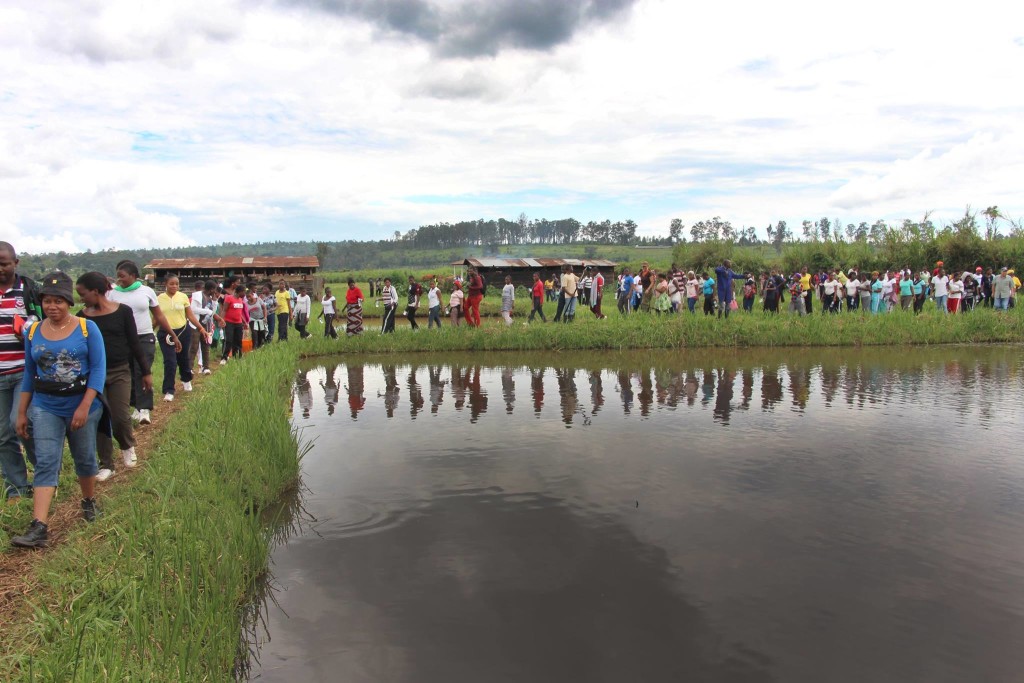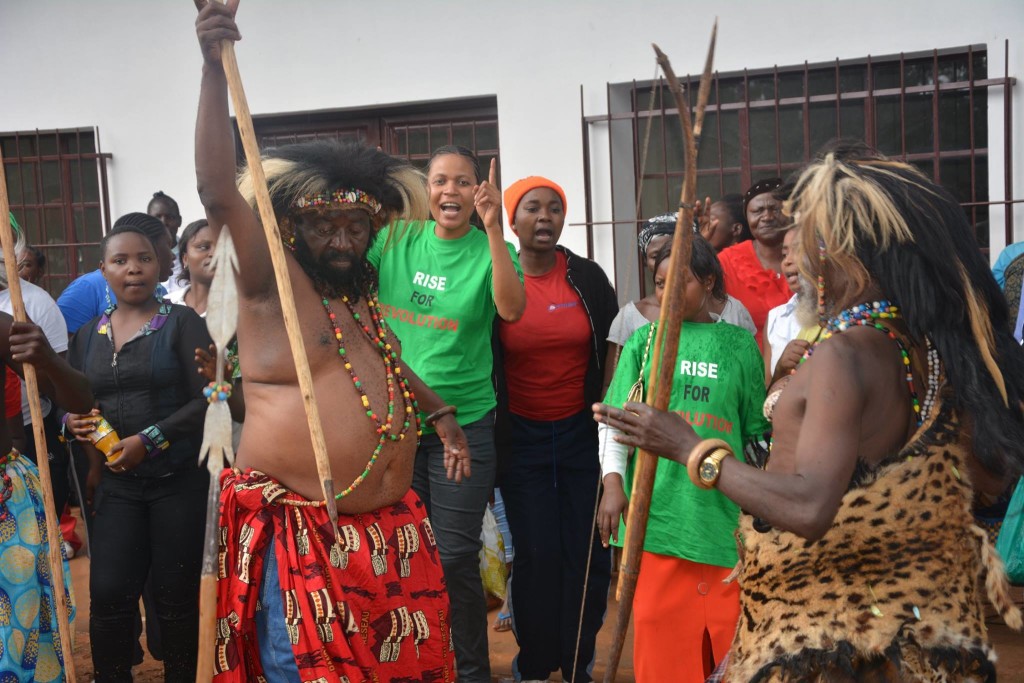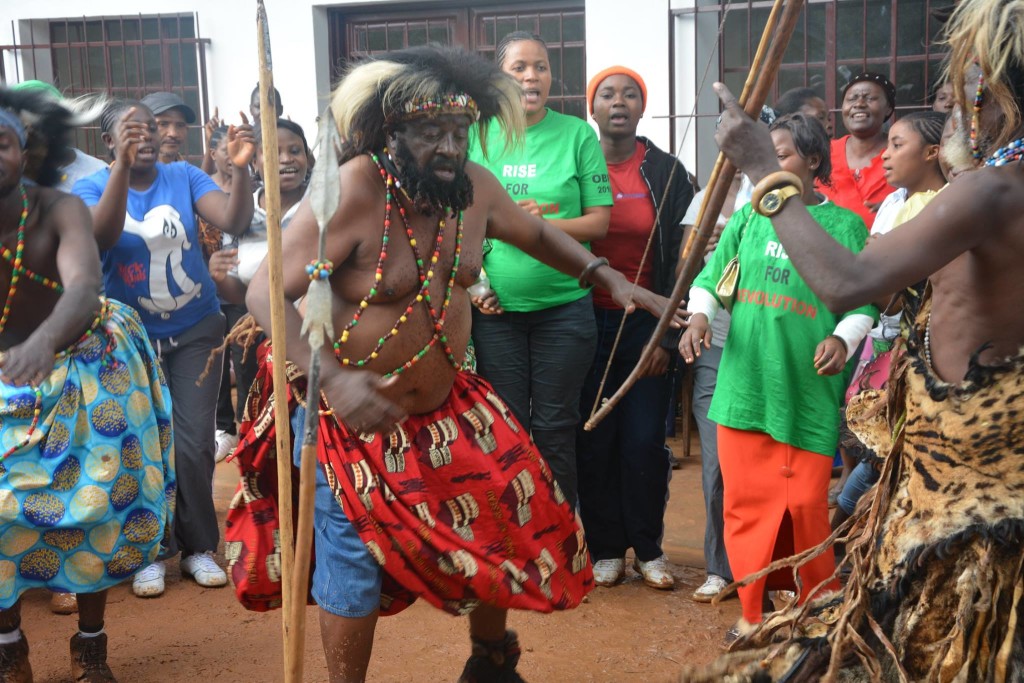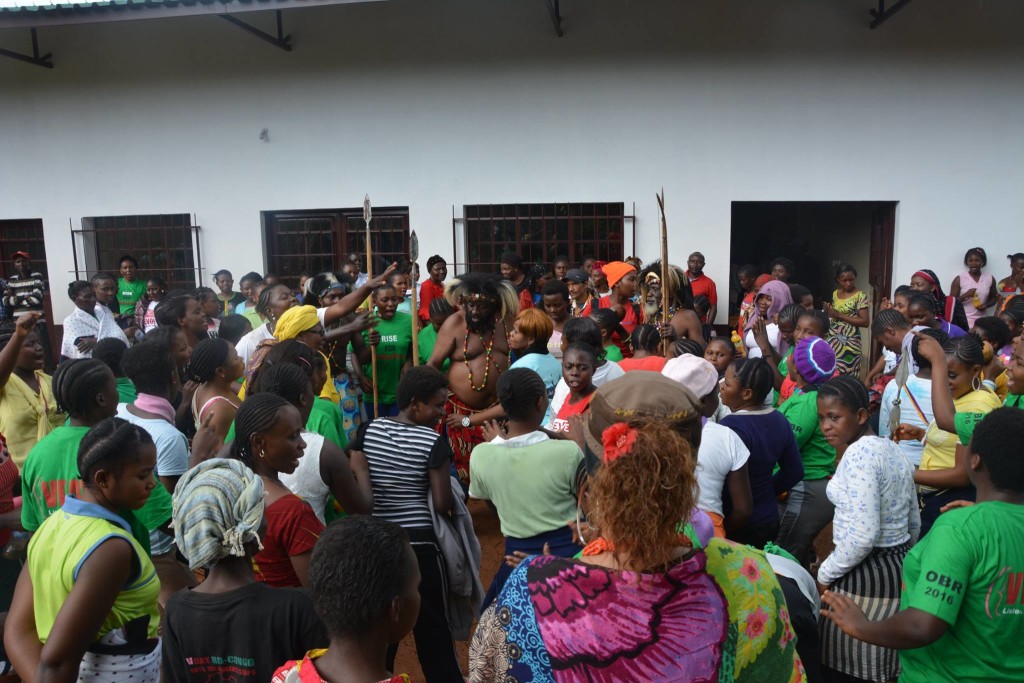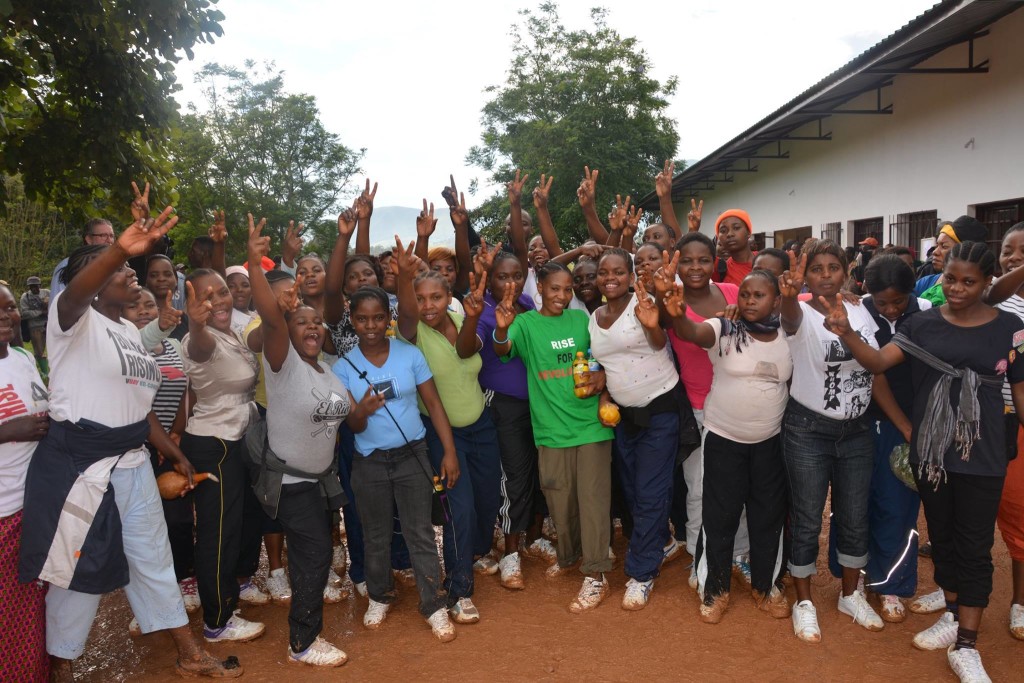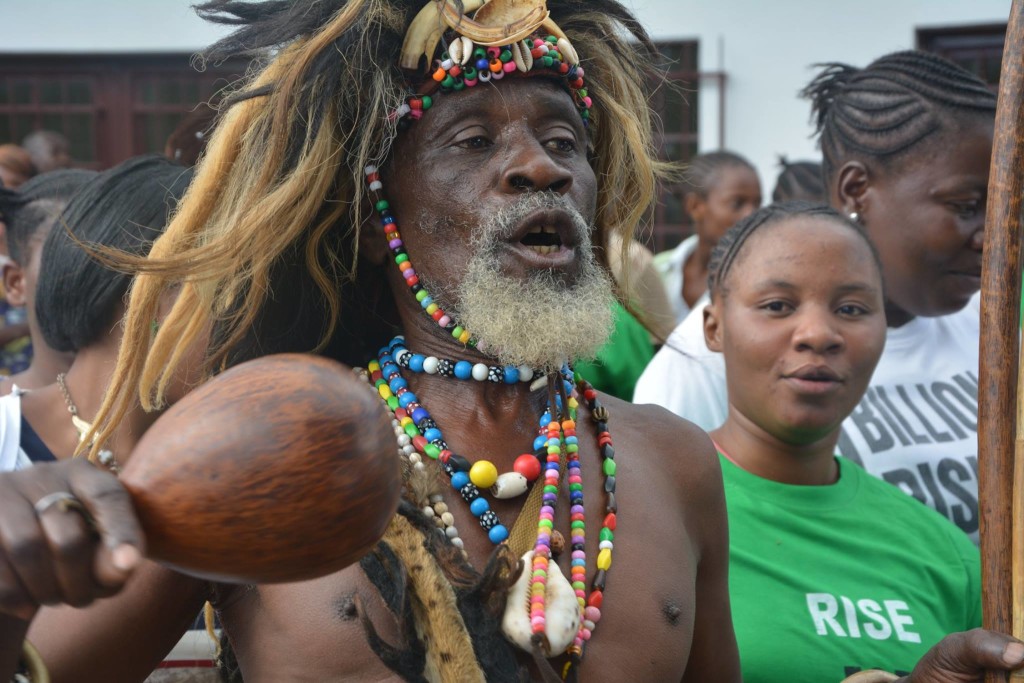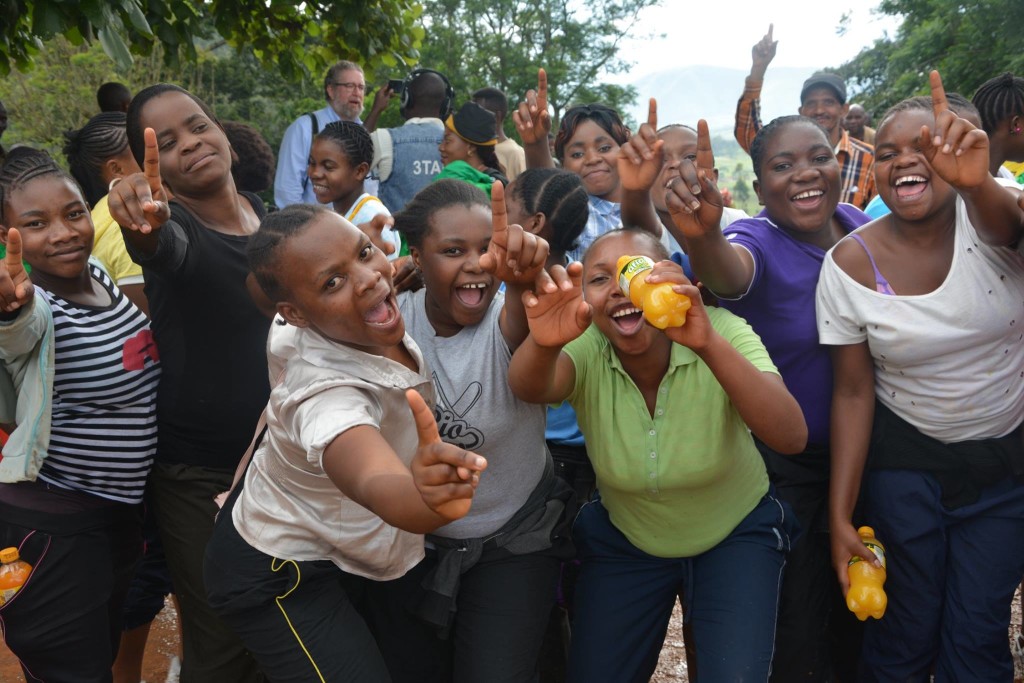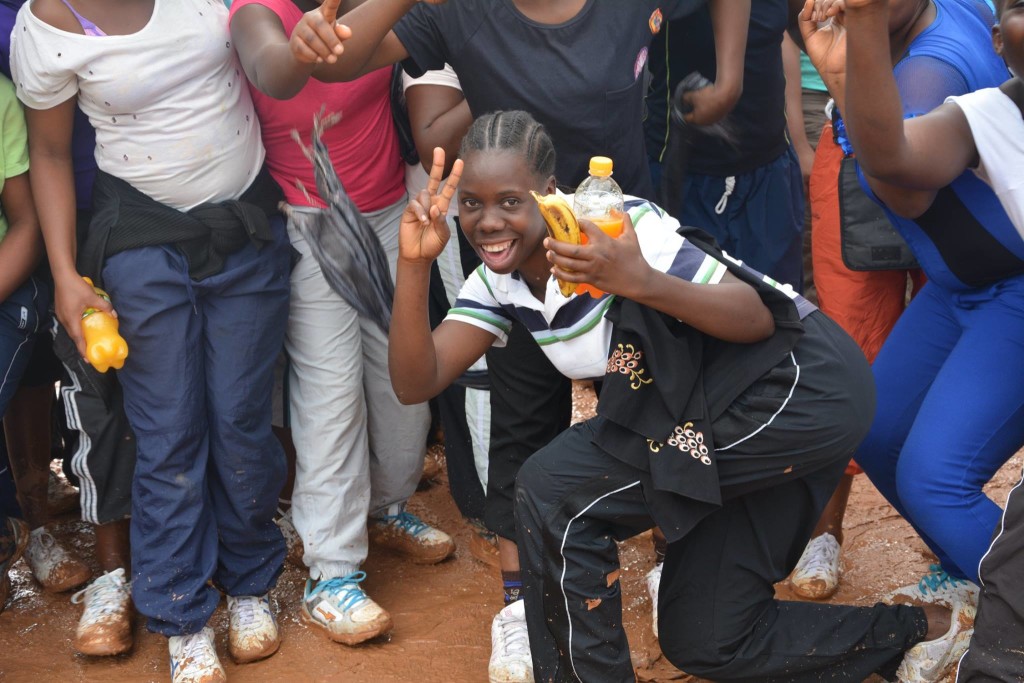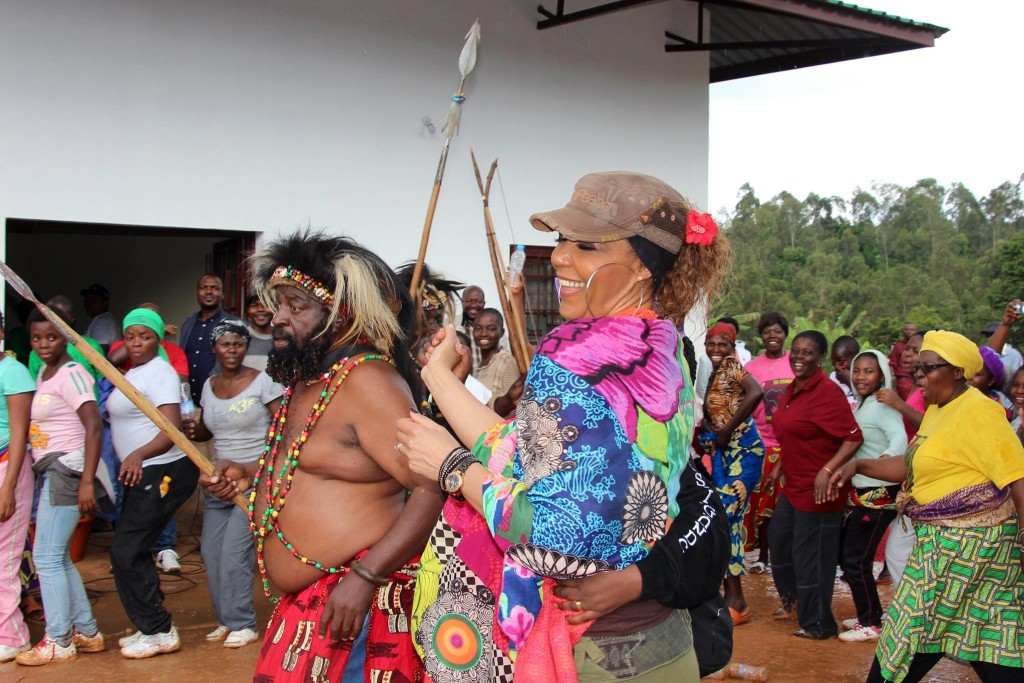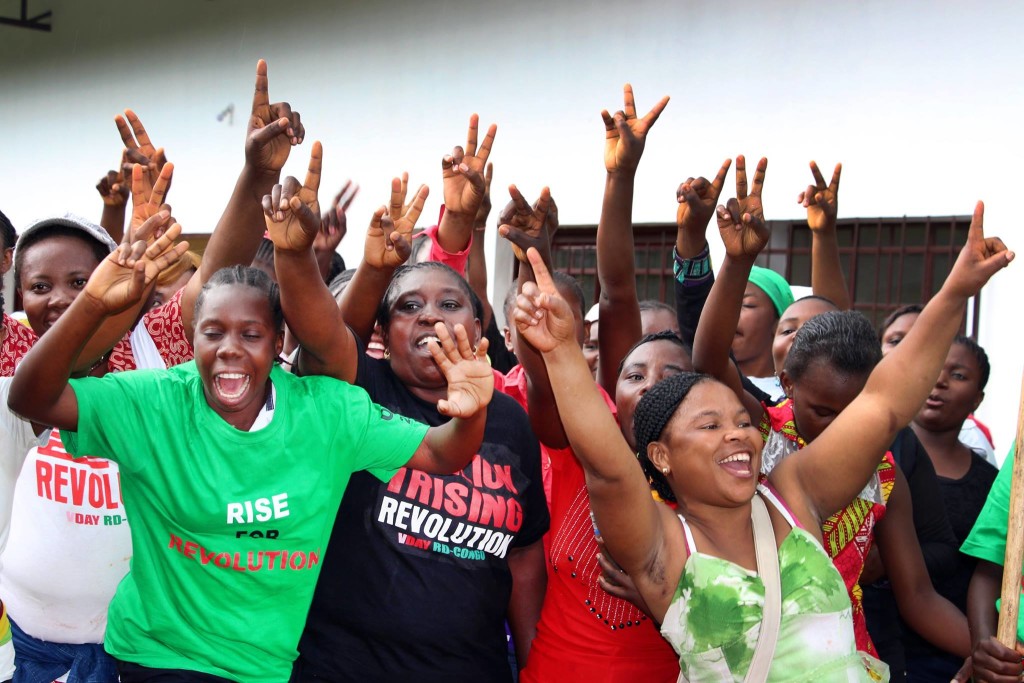
Violence against women and girls continues unabated in every continent, country and culture. It takes a devastating toll on women’s lives, on their families and on society as a whole. Most societies prohibit such violence – yet the reality is that too often, it is covered up or tacitly condoned. Given that it is estimated that, worldwide, one in three women will become a victim of rape or beaten in her lifetime and that One Billion women violated is an atrocity, VDAY DRC announces the launch of One Billion Rising Revolution 2016.
On 14 February 2013, VDAY took action to end violence against women and girls across the globe. Following the same path, VDAY Congo reached and mobilized a great number of people to express their outrage, to Strike, to Dance and to Rise against violence against women and girls in their households, families, labor places, churches, etc. We succeeded to reach people who stood in solidarity to denounce and stand against the forms of violence against women and girls.
In 2014 the activities for OBR grew bolder and wider. In the actions and space we took, we created perceptibility of issues that are connected to violence against women and girls. We took to the streets –women and men who love them– to demand justice and bring the epidemic of violence against women in the forefront. We talked to the power players, we gave knockout speeches, and we sensitized on the media, danced and released stories with women survivors of violence. We informed people about the persistence of violence against women in their households, work places, communities and countries, and about the escalating efforts of VDAY to RISE, RELEASE and DANCE to demand JUSTICE for women survivors of violence and to end violence against women. We made the audience knowledgeable about how and why we can’t stop rising and why women had to go to the places entitled to justice to release their stories on February 14, 2014. One Billion Rising for JUSTICE was a demand and a call to take action.
On 14 February 2015, we rose to demand that the paradigm must be changed. We demanded equality for chances. We demanded gender justice. We demanded the end of impunity, and we demanded so many other things which loom large in the country because of patriarchy and the existing gender gap between men and women.
ONE BILLION RISING REVOLUTION 2016 is an escalation of efforts to end violence against women and girls. We will continue activating the energies we accumulated since 2013. We will spread the same message and slogans of REVOLUTION.
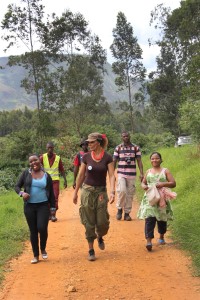

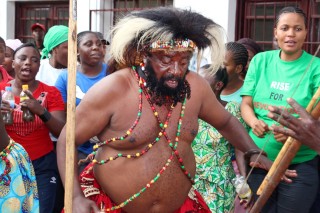
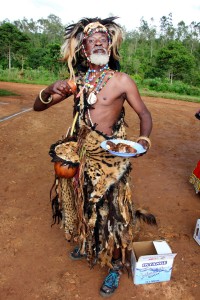
The rising which is launched in November 2015 coincides with The Official 16 Days of Activism Against Gender Violence Campaign with the theme “From Peace in the Home to Peace in the World: Make Education Safe for All!” It is a campaign that focuses specifically on the relationship between militarism and the right to education in situations of violent conflict, in relative peace, and variety of education settings, while continuing to make the links with militarism, as an encompassing patriarchal system of discrimination and inequality based on our relationships to power. It will be launched in the V-World Farm a farm that proves that a new world is possible.
The rising in DRC in 2016 will bring “THE GREEN REVOLUTION” into focus. Since we started rising and standing in solidarity with women across the world who experience violence in general and those from DRC who have experienced great losses including loss of lives, rape, kidnapping, incest, etc., we need the humanity and the Congo to bring national and international focus to another aspect that needs revolution and for which we are determined to invite people to rise and create a new kind of consciousness through resistance and action.
The campaign of One Billion Rising Revolution: Listen! Act! Rise! 2016 will get inspiration from the paradox of life in the Congo that needs to be revolutionized.
From East to West and from South to North, DR Congo is a paradox, in that it is rich in natural resources yet is one of the poorest countries in the world. Its population has to put up with violence, disease, hunger and the mass displacement of people caused by more or less two decades of wars and cross-border conflicts. With impunity, political impotence, conflicts over natural resources which have continually flared, East Congo has remained a hotbed of all forms of violence.
With the superficial measures and number of forests, arable lands we have in the DRC, yet most people living here have to endure chronic food insecurity and agricultural production is too low. A lack of security and poor infrastructure are limiting access to the market and farmers cannot seek the help of investments funds.
Congolese Women are the driving force of the local economy, they feed their children and families with the farm produce after they have plowed the land themselves, but they have practically no say in how their income is spent by their husbands and have no property rights because customary, domestic and sexual violence against women is rife.
Congo is judged to be the richest poorest country that exists in the world. With a territorial extension roughly the size of Western Europe, the DRC is estimated to possess half of Africa’s water and forest resources as well as an estimated $24 trillion wealth in untapped mineral resources but people do not have water and children die from water-borne diseases. With a population of 67 million people, the Democratic Republic of Congo is considered to be the richest country in the world in terms of natural resources. The DRC is also Africa’s most bio diverse country and home to five World Heritage Sites that include Salonga National Park (Africa’s largest tropical rainforest) and Virunga National Park (Africa’s first national park), but this richness and potential, however, does not translate into economic or social prosperity. Unfortunately, the DRC has been constantly placed at the bottom of the UN’s Human Development Ranking and at the near bottom in worldwide world rankings. Many reports of the International Monetary Fund , especially reports which describes poverty in DRC and which consider the paradox between the riches in the country and the living conditions of the populations, have proved that many Congolese live on 1,25 dollar per day per person. 8 inhabitants out of 10 in DRC live below the absolute poverty line and that women and children are the most affected.
As one of the richest countries in the world with the natural resources it abounds in, the R D Congo is at the same time regarded as the worst place in the world to be a woman due to the systematic sexual violence that takes place in the country. Additionally, it has the world’s second highest infant mortality rate as a result of high levels of malnutrition, precarious health conditions, among others.
The Democratic Republic of Congo is the world’s premier producer of cobalt, and has major mining activity in the gold, diamond, cooper and coaltan industries; yet, the majority of the industry is controlled by international corporations and by a reduced number of Congolese that profit from the extractive industry whereas there are many young people who graduate and remain jobless.
In 2016, we will tell the DRC and the planet that it is high time for Congolese to bring change and improve their lands, benefit from their forests by keeping bees to produce honey, plowing their lands to become agricultural entrepreneurs, breeding animals for economic empowerment, planting trees to nourish and protect Mother Nature. We will raise the consciousness of rich persons who after buying large lands from poor persons lay them fallow for years and leave the poor to starve and die from hunger. It will be an opportunity for GREEN REVOLUTION!
In solidarity!
